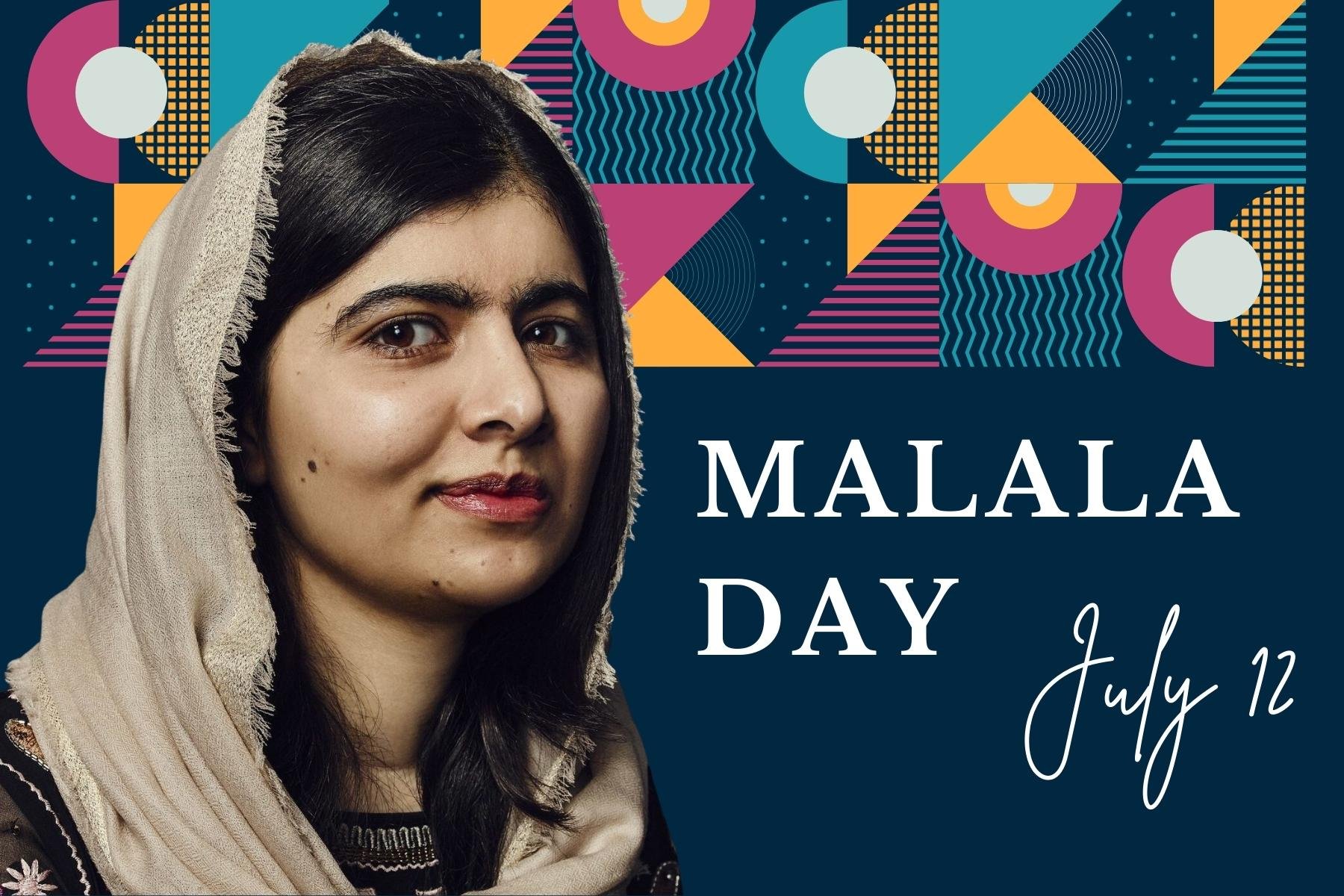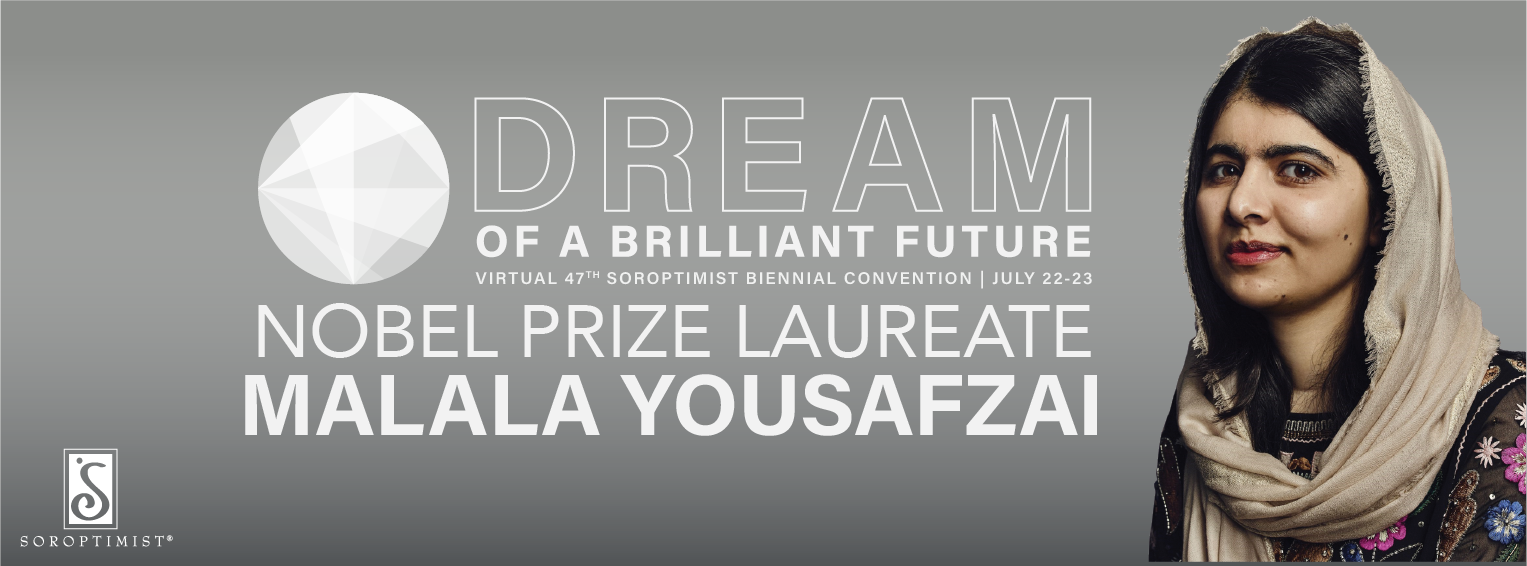Malala Day: July 12 – What to Know About Malala Day
July 12 is observed around the world as Malala Day. Most people are familiar with Malala Yousafzai, the Pakistani girls' education activist who has spoken out against the Taliban's ban on girls receiving an education. But how did July 12 become Malala Day, and what does it symbolize?
Who Is Malala?
Malala was born on July 12, 1997, in Mingora, Pakistan. Malala became an activist and champion of girls' education after the Taliban took control of Swat Valley and banned girls from attending school.
Her bestselling book, I Am Malala, was first published in October 2013.
In 2012, Malala survived an attempted assassination by the Taliban. A masked man boarded the bus she was riding and shot her. She survived the injuries but part of her face was paralyzed and she has had to undergo several surgeries and extensive rehabilitation in the years since.
After giving a speech to the United Nations General Assembly on her 16th birthday, July 12, 2013, Malala rose to global fame as an icon for education and women's rights. Following her speech, the UN Secretary-General declared July 12 as "Malala Day" in honor of her activism and to ensure that the world would keep fighting for every child's right to receive an education.
On November 10, 2014, at age 17, Malala became the youngest person to win the Nobel Peace Prize for her efforts. From 2018-2020 she attended the University of Oxford to study Philosophy, Politics and Economics. Today she continues to champion the girls’ access to education through her nonprofit, the Malala Fund, and her collaborations with other organizations.
What is Malala Day?
The UN first proclaimed “Malala Day” on July 12, 2013. July 12 is both Malala Yousafzai’s birthday and the anniversary of her historic speech at the UN General Assembly in 2013. Although the day is named for her, Malala has said, “Malala day is not my day. Today is the day of every woman, every boy and every girl who have raised their voice for their rights.”
Malala Yousafzai spoke to the U.N. Youth Assembly on her 16th birthday on July 12, 2013.
Malala Day calls attention to the ongoing struggle for gender-equitable access to education. The right to a safe, quality education is recognized as a human right—however, many girls are forced to leave school while others never have the chance to go in the first place.
More than 130 million girls are out of school due to factors such as gender bias, unplanned pregnancy, child labor, early marriage, political conflict, natural disaster, or inaccessibility.
Improving access to education is the number one way to empower women and girls. Every additional year of primary school increases girls' eventual wages by 10-20%. It also encourages them to marry later and have fewer children, and leaves them less vulnerable to violence. Girls’ education not only improves life outcomes for girls, it also bolsters economies and drives better health outcomes for whole populations.
That’s why it’s important to keep advocating and investing in programs that improve girls’ education, such as Soroptimist’s Dream It, Be It: Career Support for Girls, which since 2015 has provided guidance to more than 84,000 girls and helped them feel more confident about their future success.
Malala to Serve as SIA 2022 Convention Keynote Speaker
Soroptimist’s 47th Biennial Convention proudly features Malala Yousafzai as keynote speaker. The virtual convention will bring thousands of women together for professional and personal development united around Soroptimist’s mission of economically empowering women and girls through access to education.
Malala’s message about the importance of education for girls comes as the global pandemic has amplified the growing need for access to education. Due to COVID-19, an estimated 47 million additional women and girls have fallen into extreme poverty. With the Malala Fund reporting that 20 million more secondary school-age girls could be out of school after the COVID-19 crisis has passed.
Malala will be joined by other speakers who will offer strategies to tackle current challenges in sessions on leadership, personal development, and Soroptimist’s unified efforts to help half a million women and girls live their dreams.
Malala Yousafzai Quotes
“On 9 October 2012, the Taliban shot me on the left side of my forehead. They shot my friends, too. They thought that the bullets would silence us, but they failed. And out of that silence came thousands of voices. The terrorists thought they would change my aims and stop my ambitions. But nothing changed in my life except this: weakness, fear and hopelessness died. Strength, power and courage was born.”
“Why is it that countries which we call ‘strong’ are so powerful in creating wars but are so weak in bringing peace? Why is it that giving guns is so easy but giving books is so hard? Why is it, why is it that making tanks is so easy, but building schools is so hard?”
“We need to encourage girls that their voice matters. I think there are hundreds and thousands of Malalas out there.”
“Often, we think we are too young, or our ideas may not work, and we need to grow up to bring change. I just say no. Whatever you want to do now, you can do it now.”
“So believe in your voice, believe in yourself, and always follow your dreams. Because especially young girls, they dream big but as they grow older they start underestimating themselves, they do not believe in themselves, they don’t dream big. So I would ask all young girls to dream big, as big as you can, and just follow your dreams and you can do anything.”
“Let us remember: One book, one pen, one child, and one teacher can change the world.”
SHARE THIS:








